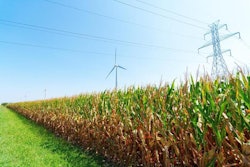From WATTAgNet:
President-elect Donald Trump’s choice for administrator of the Environmental Protection Agency (EPA), Oklahoma Attorney General Scott Pruitt, was questioned by lawmakers at his confirmation hearing Wednesday on Capitol Hill.
Members of the Senate Environmental and Public Works Committee questioned Pruitt, who has sued the EPA 14 times, about his record.
As attorney general of one of the largest oil-, natural gas- and grain-producing states, Pruitt has stood up against the Renewable Fuel Standard (RFS), an EPA-run program that requires transportation fuel sold in the United States to contain a minimum volume of renewable fuels. The RFS originated with the Energy Policy Act of 2005 and was expanded and extended by the Energy Independence and Security Act of 2007. However, Trump has said he supports the RFS, calling it “an important tool in the mission to achieve energy independence for the U.S.,” adding, “I will do everything in my power as president to achieve that goal.”
The agriculture industry has given Pruitt mixed reviews since Trump nominated him for the post. The American Farm Bureau Federation (AFBF) says that, as Oklahoma attorney general, Pruitt has “stood up for common-sense, effective regulation that protects the environment and the rights of the regulated community.” But Democratic U.S. Senator and ranking member of the U.S. Senate Committee on Agriculture, Nutrition and Forestry, Debbie Stabenow, said she is “deeply concerned” by Trump’s choice to lead the EPA.
Iowa Sens. Joni Ernst and Chuck Grassley recently met with Pruitt and they said he reassured them he would uphold the RFS, but some politicians and residents are still opposed to his nomination.
Some Iowa farmers and energy producers have called on Sens. Ernst and Grassley to oppose Pruitt for the post.
Scott Pruitt, Testifying to Lead E.P.A., Criticizes Environmental Rules
Speaking to critics who have said that Mr. Pruitt has worked on behalf of the energy industry rather than the public good, he said, ‘We must reject as a nation the false paradigm that if you’re pro-energy you’re anti-environment, and if you’re pro-environment you’re anti-energy.’
Read More at The New York Times

















